Beautiful Pterosaur Models Go on Display
Pterosaurs at the Field Museum
Visitors to the famous Field Museum in Chicago (USA), might get into a bit of flap today, as they will be coming face-to-face with life-size replicas of flying reptiles. The pterosaurs are part of a $16.5 million USD re-fit for the Museum. They will be installed into the enormous Stanley Field Hall, sharing the space with a giant titanosaur exhibit.
Unloading the Head and Neck of Quetzalcoatlus
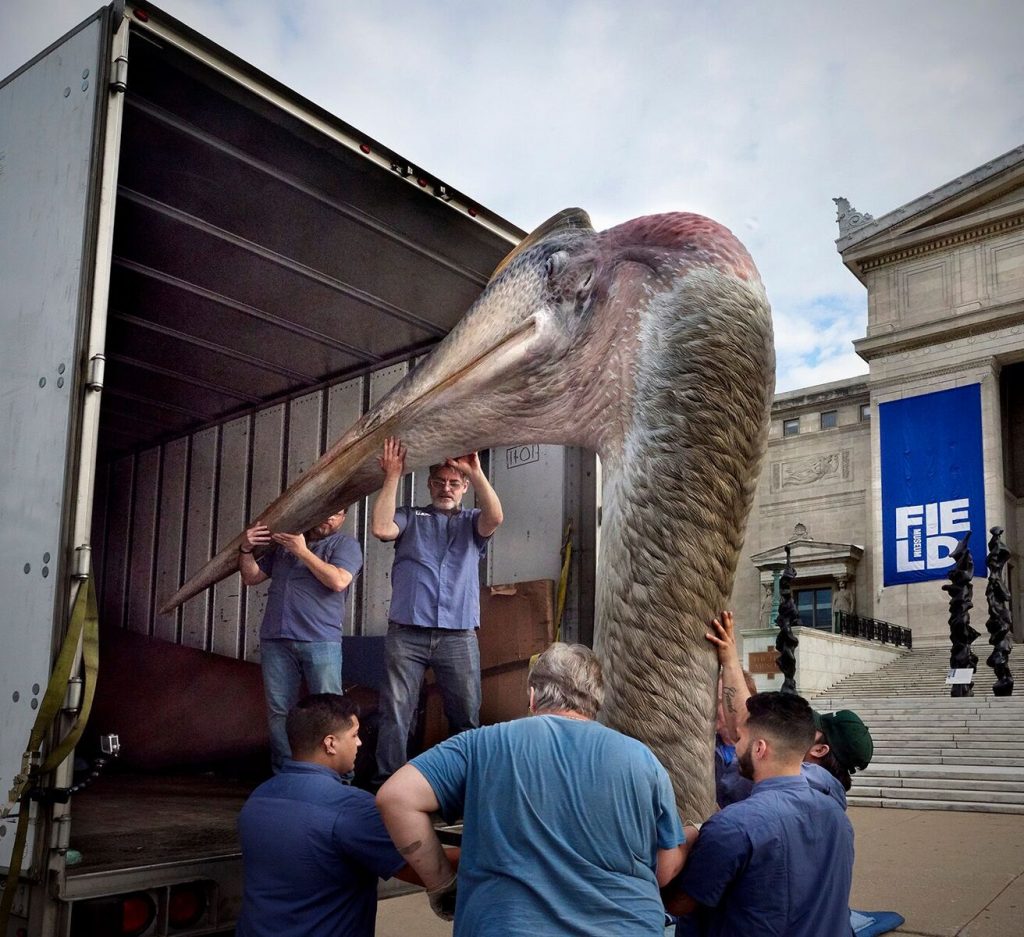
Picture credit: (c) Field Museum, photo by John Weinstein
A Flock of Pterosaurs
The flock of pterosaurs will give visitors a lifelike look at the animals that shared the Mesozoic with the dinosaurs. They’ll also serve as a way-finding tool from Stanley Field Hall up to the rest of the dinosaurs in the permanent exhibition – “The Griffin Halls of Evolving Planet”. The life-size pterosaurs and the thirty-seven-metre-long titanosaur will be displayed amongst a series of hanging gardens, as staff at the Field Museum prepare to commemorate the institution’s 125th anniversary.
Commenting on the new exhibits, Field Museum president Richard Lariviere stated:
“Our goal as an institution is to offer visitors the best possible dinosaur experiences and we want that to start right when visitors first enter Stanley Field Hall. The new hanging gardens and the flock of pterosaurs will take our visitors back to the age of the dinosaurs and will complement the new titanosaur.”
The Body of a Giant Quetzalcoatlus is Unloaded
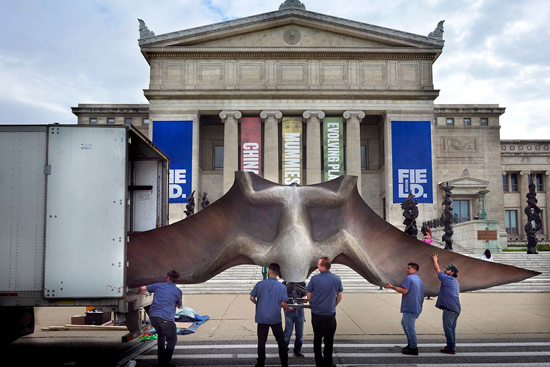
Picture credit: (c) Field Museum, photo by John Weinstein
Rhamphorhynchus, Pteranodon and Quetzalcoatlus
The pterosaur replicas include nine hawk-sized, long-tailed replicas of the Jurassic flying reptile Rhamphorhynchus, two Pteranodon figures and two huge replicas of Quetzalcoatlus. Pteranodon and Quetzalcoatlus are associated with Upper Cretaceous strata. Flying reptiles from the Pteranodon genus were thought to have been the largest flying vertebrates that ever existed, that was until 1975, when the much larger azhdarchid Quetzalcoatlus was scientifically described.
For pterosaur models and other prehistoric animal replicas: CollectA Deluxe Figures.
Manhandling a Pterosaur Replica (P. sternbergi)
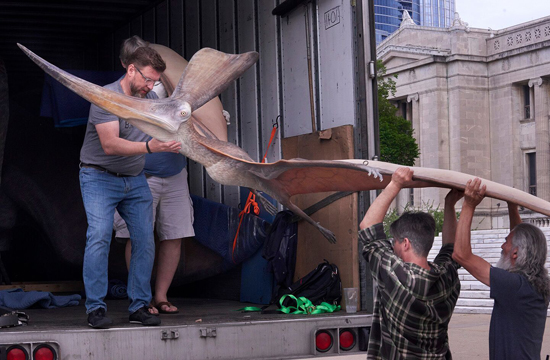
Picture credit: (c) Field Museum, photo by John Weinstein
Senior Exhibitions Project Manager Hilary Hansen exclaimed:
“The pterosaurs are nothing short of amazing. Since Stanley Field Hall is such a massive room, we had the opportunity to add a titanosaur and an entire flock of pterosaurs. It’ll really transform the space.”
The models were created by Blue Rhino, under the supervision of the scientists at the Field Museum, the brief was to create the most up-to-date and scientifically accurate figures possible.
Pteranodon Taken up the Stairs
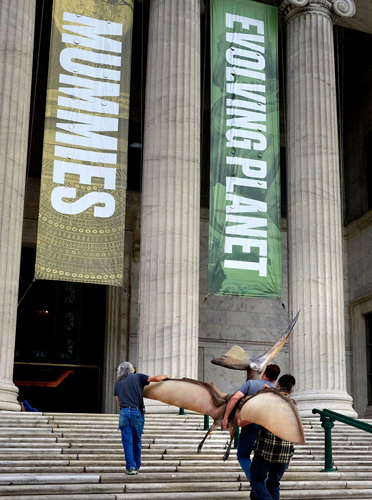
Picture credit: (c) Field Museum, photo by John Weinstein
Wingspans the Length of a Bus
The giant Quetzalcoatlus replicas really help to convey the size and scale of these magnificent reptiles. The wingspan of the models is a little under twelve metres, that’s about as long as a school bus! The skulls of these types of pterosaur are immense. Azhdarchid pterosaurs like Quetzalcoatlus had the largest skull of any terrestrial vertebrate.
The Huge Head of a Quetzalcoatlus Replica
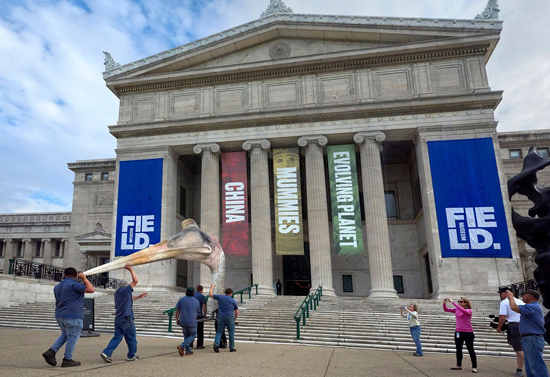
Picture credit: (c) Field Museum, photo by John Weinstein
Everything Dinosaur acknowledges the assistance of a media release from the Field Museum in the compilation of this article.
Visit the website of Everything Dinosaur: Everything Dinosaur.

